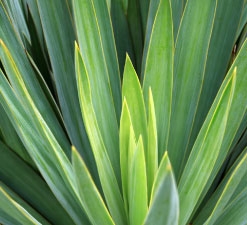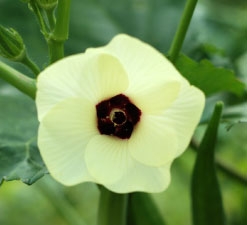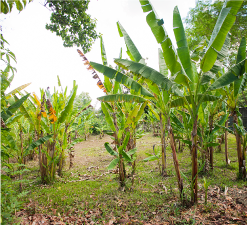Abaca (Musa textilis)
Abaca fiber is the main ingredient of SPMI's specialty pulp because its strength, length, and porous quality make it the most reliable natural fiber in the market. Tests have shown that abaca pulp contains fibers that are four times longer than conifer wood pulp, making it a popular raw material for currency and security paper, teabag paper, coffee filters, meat and sausage casings, stencil paper, and electrolytic condenser paper.
Abaca fiber is best known as Manila hemp because it is harvested from the Musa textilis, a plant predominantly found in the Philippines due to the country's warm, wet climate and volcanic soils. Industry leaders worldwide who wish to reduce their carbon footprint have come to prefer abaca pulp over synthetic materials in response to the growing global demand for sustainable, environment-friendly products. SPMI produces both food grade and non-food grade pulp, both bleached and unbleached.

Sisal (Agave sisalana)
SPMI also manufactures specialty pulp made of sisal or Agave sisalana that is sourced mainly from Africa and South America. This fiber is also found in Mexico and in parts of the United States. The plant's tough lance-shaped leaves growing out from the stalk are fleshy and rigid, making sisal an excellent raw material for rope and roofing material. Due to its high porosity, sisal pulp is used mainly in the production of cigarette filters.

Jute (Corchorus olitorius)
With our state-of- the-art manufacturing technology, SPMI can also produce specialty pulp made of jute, one of the world's most affordable natural fibers. Known for its coarse, strong threads, jute is made from the stalks of the corchorus plant found mainly in the Indian Subcontinent. Nearly all of the world's supply of jute comes from Bangladesh and India.
Besides having a distinctive smell, jute fiber easily reacts to the presence of moisture or acids. Jute is used all over the world to make textile for sacks or curtain material, handicrafts, and carpets. Several industries, including those that produce automobiles, pulp and paper, furniture, and beddings, use jute pulp to manufacture nonwovens, technical textiles, and composites.
 Kenaf (Hibiscus cannabinus)
Kenaf (Hibiscus cannabinus)
SPMI can also produce specialty pulp made from kenaf or Hibiscus cannabinus, an annual fiber crop closely related to cotton, okra, and hibiscus. Native to Central Africa, kenaf grows in tropical and temperate climates and thrives with abundant sunlight and rainfall. Two types of fiber are produced from kenaf stems: a coarser fiber in the outer layer and a finer fiber in the core. Kenaf pulp is used in papermaking because of its natural whiteness. Paper manufacturers prefer kenaf over wood pulp as it requires less bleaching.

